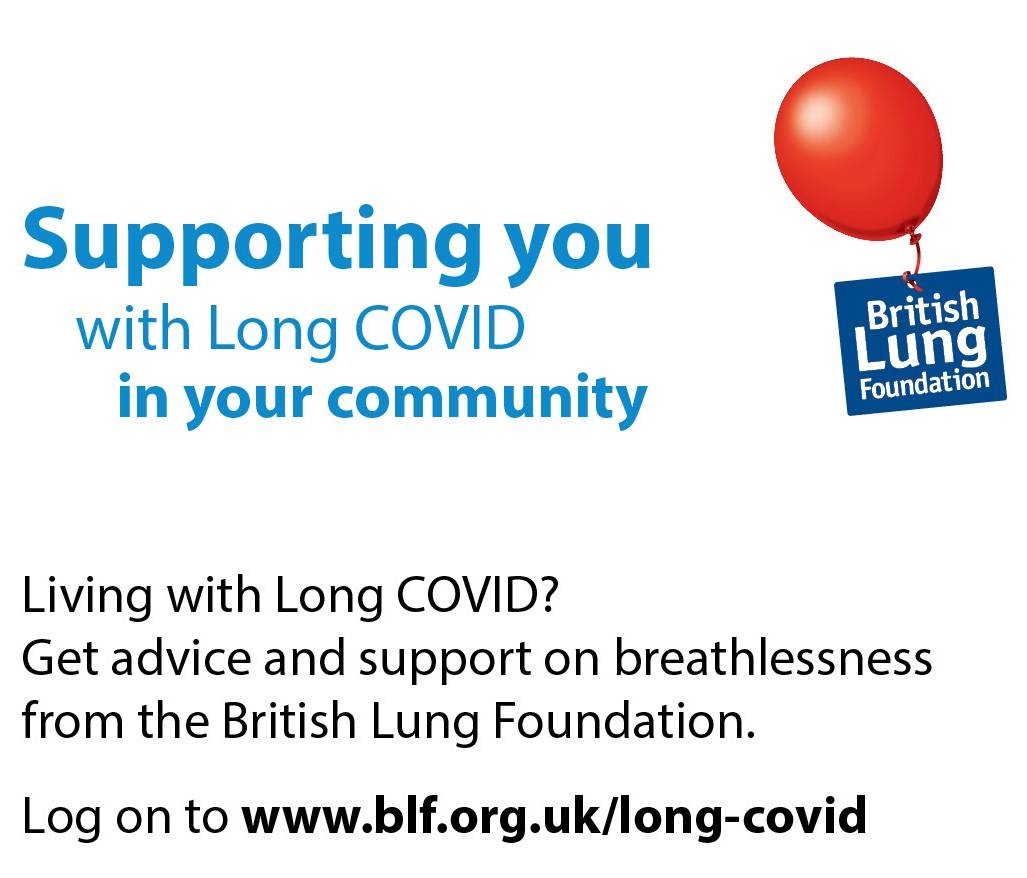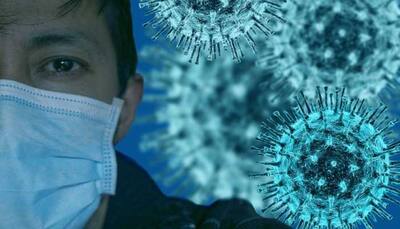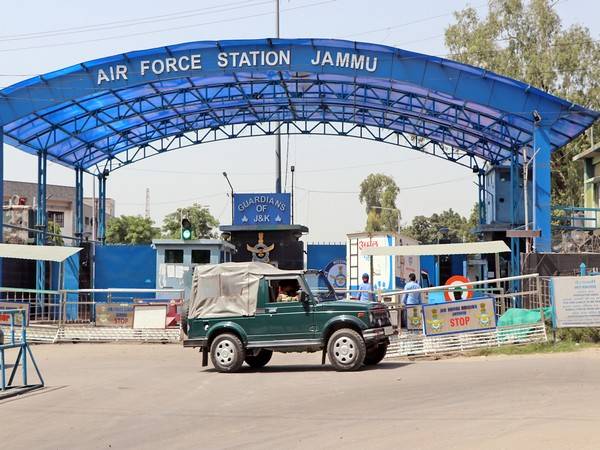Long COVID is used to describe signs and symptoms that last for longer than 4 weeks after getting COVID-19. Long COVID can affect your whole body and you may experience lots of different symptoms, either at once or at different times
Long COVID Symptoms can include:
- breathlessness
- extreme tiredness (fatigue)
- problems with memory and concentration (known as ‘brain fog’)
- a cough that’s been ongoing since you’ve had COVID-19.
Other common Long COVID symptoms can include:
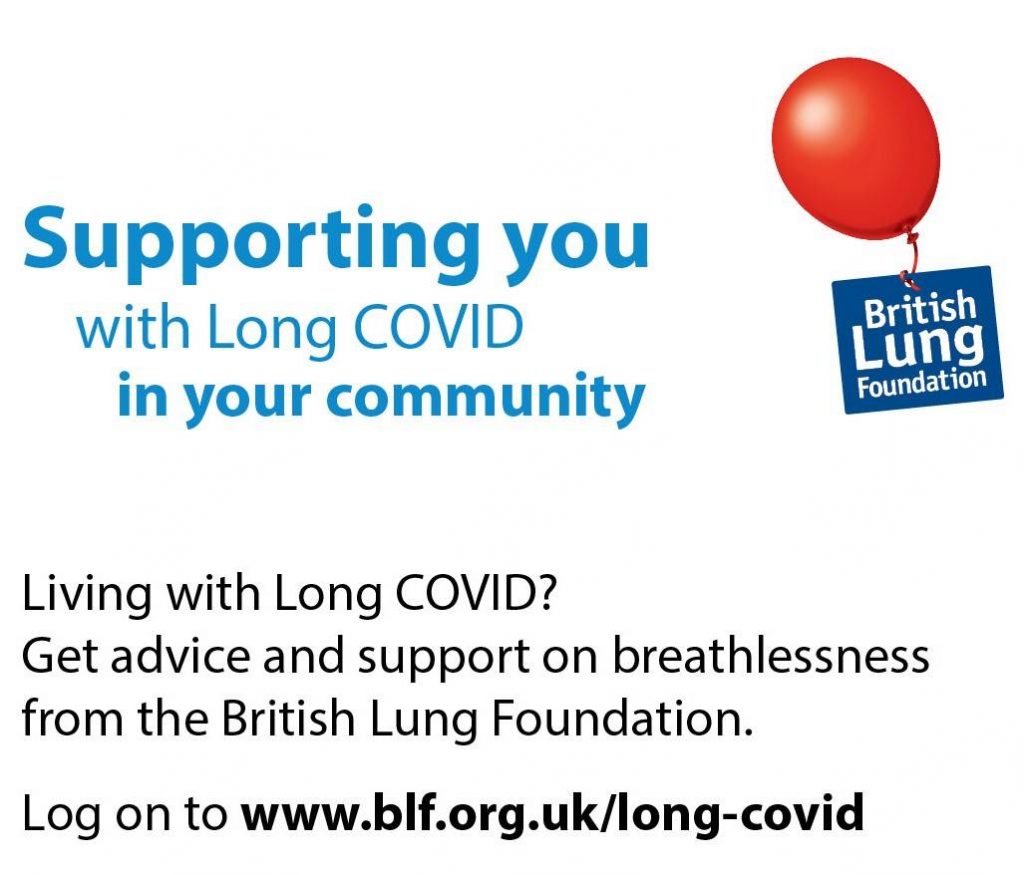
- difficulty sleeping (insomnia)
- dizziness
- pins and needles
- joint pain
- chest pain or tightness; heart palpitations (these may need urgently investigating, so it’s important to seek medical help as soon as possible)
- depression and anxiety
- tinnitus, earaches
- feeling sick, diarrhoea, stomach aches, loss of appetite
- a high temperature, cough, headaches, sore throat, changes to sense of smell or taste
- rashes
What should I do if I think I’ve got Long COVID and what care can I expect?
If you think you may have Long COVID, you should contact your GP surgery, who will offer you an appointment either in person, by video or over the phone. They should also give you information in the format or language you need, as this will help you make decisions about your care.
If you have been in hospital with COVID-19, you should be contacted by a healthcare professional 6 weeks after you’ve been discharged, to check on how you’re doing and ask about your symptoms.
Your doctor will try to find out if you have Long COVID if you either:
- still have symptoms after 4 weeks
- have new symptoms 4 weeks after you first had symptoms of COVID-19.
If the healthcare professional seeing you thinks you might have Long COVID, they will look at your medical history and ask a few questions, such as:
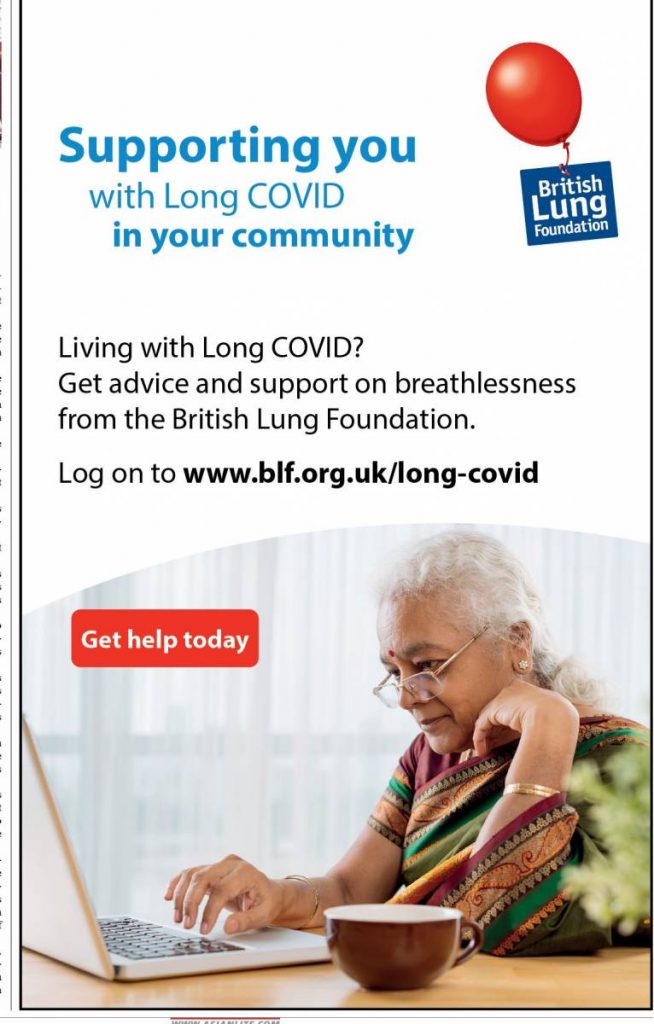
- Have you had COVID-19? You don’t need to have had a positive test, especially if you think you had COVID-19 before testing was widely available.
- What symptoms have you had?
- When did your symptoms start and how long have you had them? They might also ask about other medical conditions that you have.
They might also ask:
- Do you have any difficulties with your memory or thinking?
- How you are managing with your day-to-day activities?
- Have you noticed any changes in your behaviour, emotions or mood?
The type of care you can expect to receive when recovering from coronavirus depends on how long you have had symptoms.
The healthcare professional treating you will carry out or refer you for tests to investigate your symptoms and help rule out any other conditions or issues. These tests might include:
- blood tests
- tests to measure your blood pressure and heart rate
- an exercise tolerance test
- ECG (heart tracing)
- a chest x-ray – this will be done by the time you have had symptoms for 12 weeks, if you still have breathing issues.
After you’ve had your assessment, you will agree what you need to do next with your doctor. This could be more tests, support or rehabilitation.
What support you get will depend on how your symptoms are affecting your life. You may be referred to a Long COVID assessment clinic, where you’ll be looked after and supported by a range of health care professionals. These are currently only available in England.
How many people in the UK have Long COVID?

The exact figures vary, but data from the Office for National Statistics released on 1 July 2021 estimated 962,000 people in the UK (1.5% of the population) were experiencing self-reported “Long COVID” symptoms. A study by scientists at Imperial College London put the figure at around two million.
How long does it take to recover from Long COVID?
The speed of recovery depends on many factors – it could take weeks or months. Long COVID isn’t the same for everyone, so you may need different care and support to other people who have had it.
While recovering from COVID-19, you might find that you become breathless at times, or you’re more breathless than normal. There are a few ways you can deal with your breathlessness, depending on the type of problem you’re experiencing. You can find more advice on how to deal with breathlessness if you have Long COVID on the BLF website, which includes videos with techniques you can practise. The videos have been translated into Bengali, Gujarati, Mandarin and Urdu, and can be viewed here: blf.org.uk/support-for-you/long-covid/breathlessness-support/managing-breathlessness/breathing-control
There are plenty of things you can do help your fatigue, including getting yourself into a routine and slowly getting more active. To learn about more ways to manage your energy when recovering from Long COVID, including a video course to help people with Long COVID keep moving and get more active, take a look at the BLF website: blf.org.uk/support-for-you/long-covid/movement-and-energy-support


